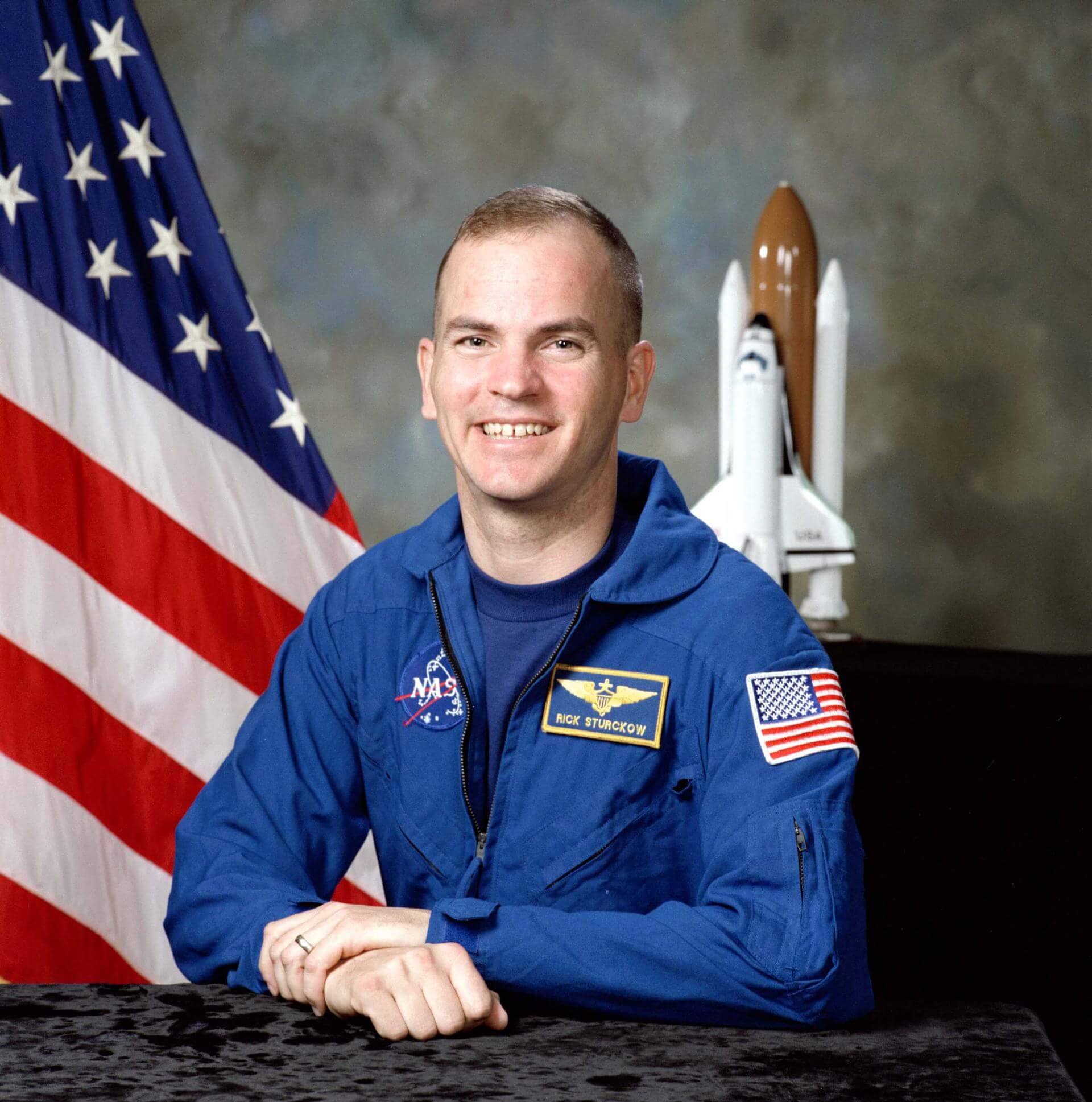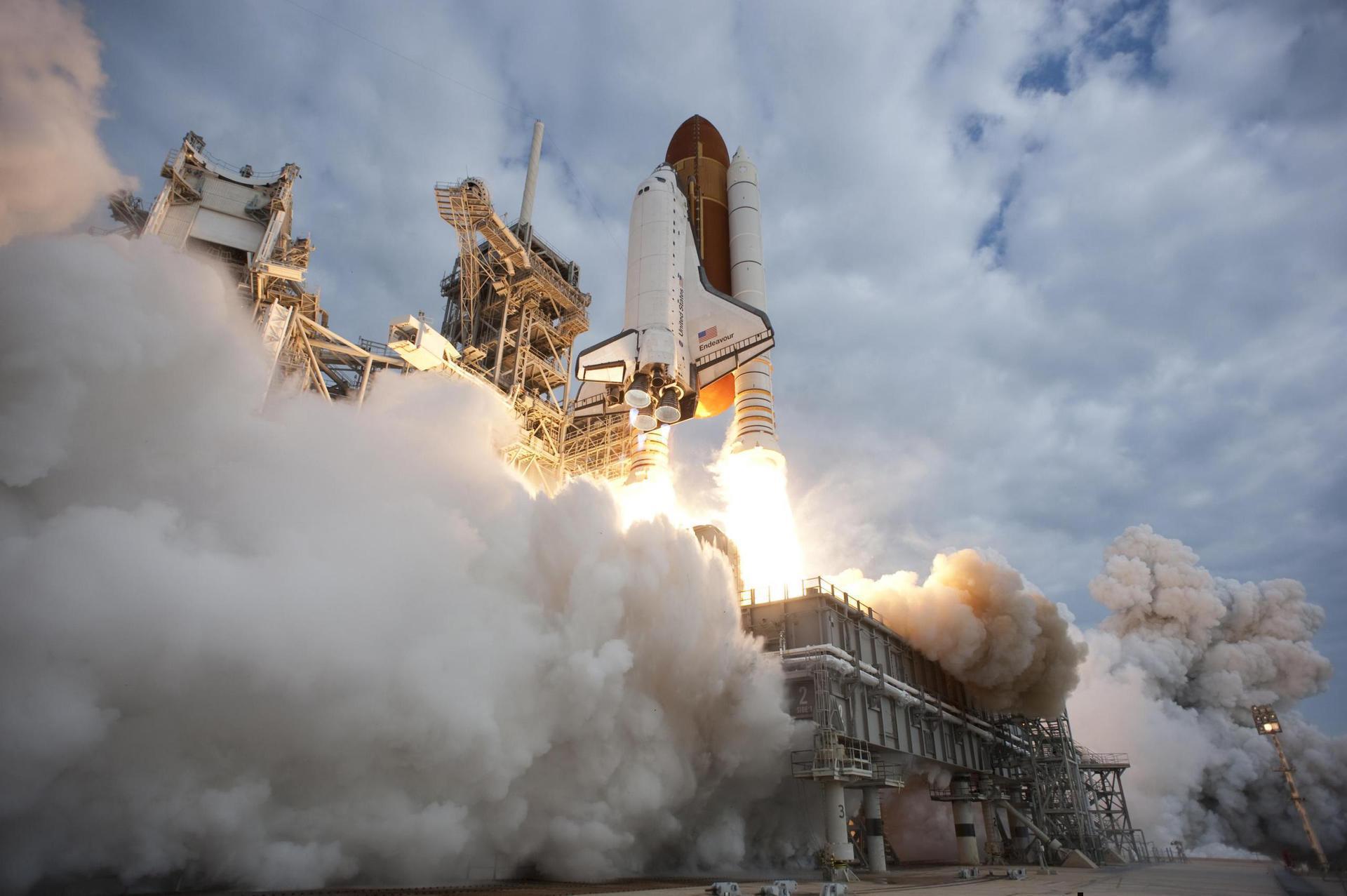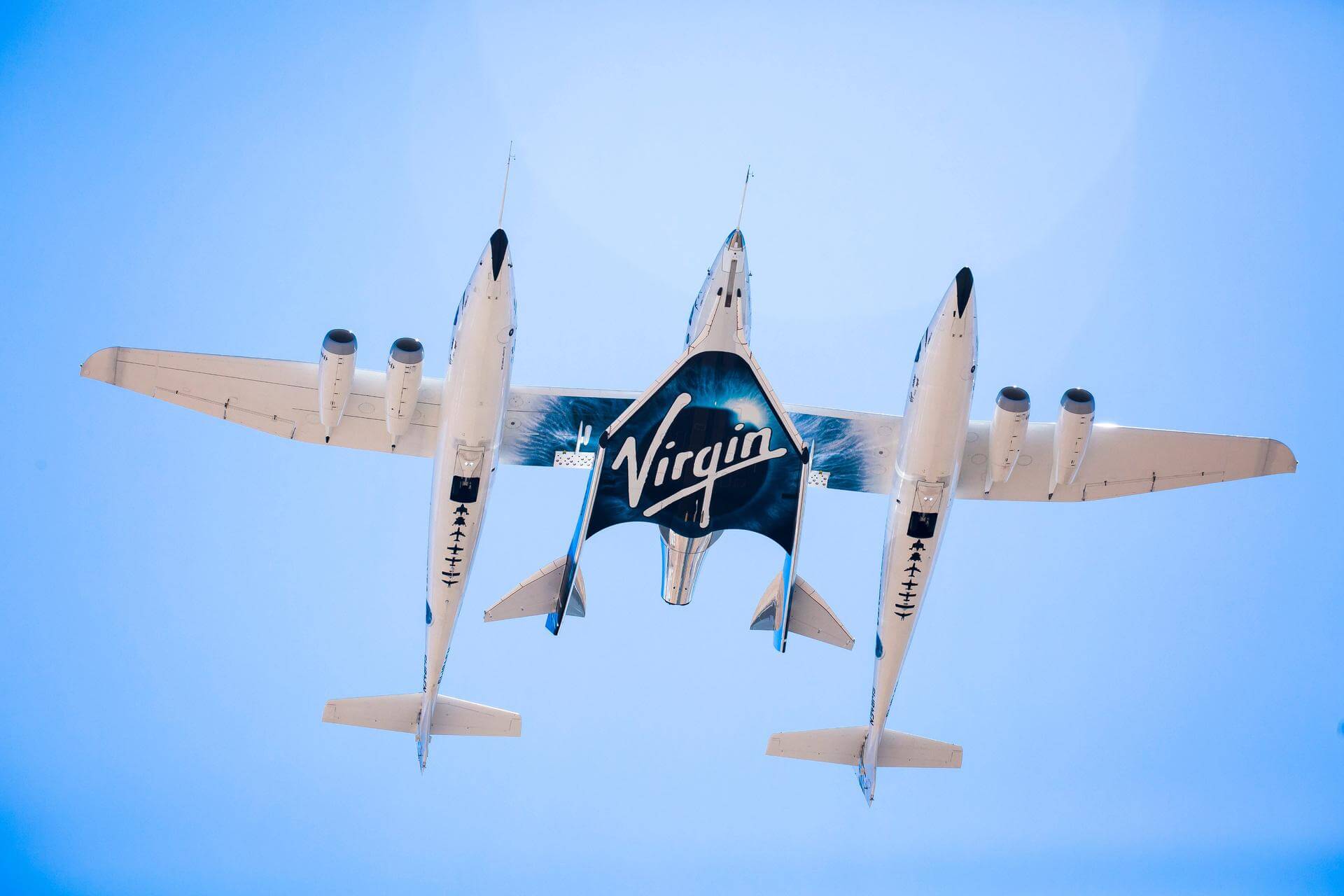Frederick W. Sturckow
American - (VG)
Active
Date of Birth: Aug. 11, 1961
Age: 64
Frederick Wilford "Rick" Sturckow is an Engineer, retired United States Marine Corps officer, former NASA astronaut, and commercial spacecraft pilot. Sturckow is a veteran of four Space Shuttle missions. He flew on STS-88 and STS-105 as a pilot and STS-117 and STS-128 as a commander. All four missions docked with the International Space Station, making Sturckow one of two people to visit the station four times. Sturckow later was assigned to the Johnson Space Center as a CAPCOM. He left NASA in 2013 to become a pilot for Virgin Galactic.
Space Shuttle Endeavour / OV-105 | STS-88
National Aeronautics and Space Administration | United States of AmericaKennedy Space Center, FL, USA
Dec. 4, 1998, 8:35 a.m.
Space Shuttle Discovery / OV-103 | STS-105
National Aeronautics and Space Administration | United States of AmericaKennedy Space Center, FL, USA
Aug. 10, 2001, 9:10 p.m.
Status: Success
Mission:
STS-105 was a mission of the Space Shuttle Discovery to the International Space Station, launched from Kennedy Space Center, Florida, 10 August 2001. This mission was Discovery's final mission until STS-114, because Discovery was grounded for a refit, and then all Shuttles were grounded in the wake of the Columbia disaster. The refit included an update of the flight deck to the glass cockpit layout, which was already installed on Atlantis and Columbia.
Low Earth OrbitSpace Shuttle Atlantis / OV-104 | STS-117
National Aeronautics and Space Administration | United States of AmericaKennedy Space Center, FL, USA
June 8, 2007, 11:38 p.m.
Status: Success
Mission:
STS-117 (ISS assembly flight 13A) was a Space Shuttle mission flown by Space Shuttle Atlantis, launched from pad 39A of the Kennedy Space Center on 8 June 2007. Atlantis lifted off from the launch pad at 19:38 EDT. Damage from a hail storm on 26 February 2007 had previously caused the launch to be postponed from an originally-planned launch date of 15 March 2007. The launch of STS-117 marked the 250th orbital human spaceflight. Atlantis delivered to the International Space Station (ISS) the second starboard truss segment (the S3/S4 Truss) and its associated energy systems, including a set of solar arrays. During the course of the mission the crew installed the new truss segment, retracted one set of solar arrays, and unfolded the new set on the starboard side of the station. STS-117 also brought Expedition 15 crewmember Clayton Anderson to the station, and returned with ISS crewmember Sunita Williams.
Low Earth OrbitSpace Shuttle Discovery / OV-103 | STS-128
National Aeronautics and Space Administration | United States of AmericaKennedy Space Center, FL, USA
Aug. 29, 2009, 3:59 a.m.
Status: Success
Mission:
STS-128 (ISS assembly flight 17A) was a NASA Space Shuttle mission to the International Space Station (ISS) that launched on 28 August 2009. Space Shuttle Discovery carried the Multi-Purpose Logistics Module Leonardo as its primary payload. Leonardo contained a collection of experiments for studying the physics and chemistry of microgravity. Three spacewalks were carried out during the mission, which removed and replaced a materials processing experiment outside ESA's Columbus module, and returned an empty ammonia tank assembly.
Low Earth OrbitSpaceShipTwo | VSS Enterprise GF30
Virgin Galactic | United States of AmericaAir launch to Suborbital flight
Oct. 7, 2014, noon
SpaceShipTwo | VSS Unity GF03
Virgin Galactic | United States of AmericaAir launch to Suborbital flight
Feb. 24, 2017, noon
SpaceShipTwo | VSS Unity CF01
Virgin Galactic | United States of AmericaAir launch to Suborbital flight
June 1, 2017, noon
SpaceShipTwo | VSS Unity GF06
Virgin Galactic | United States of AmericaAir launch to Suborbital flight
Aug. 4, 2017, noon
SpaceShipTwo | VSS Unity VP-03
Virgin Galactic | United States of AmericaAir launch to Suborbital flight
Dec. 13, 2018, noon
SpaceShipTwo | VSS Unity GF08
Virgin Galactic | United States of AmericaAir launch to Suborbital flight
May 1, 2020, 3:14 p.m.
SpaceShipTwo | VSS Unity VF-02
Virgin Galactic | United States of AmericaAir launch to Suborbital flight
Dec. 12, 2020, 3:24 p.m.
SpaceShipTwo | VSS Unity VF-03
Virgin Galactic | United States of AmericaAir launch to Suborbital flight
May 22, 2021, 3:27 p.m.
SpaceShipTwo | VSS Unity 24
Virgin Galactic | United States of AmericaAir launch to Suborbital flight
April 26, 2023, 1:47 p.m.
SpaceShipTwo | VSS Unity 25
Virgin Galactic | United States of AmericaAir launch to Suborbital flight
May 25, 2023, 4:23 p.m.
SpaceShipTwo | Galactic 02
Virgin Galactic | United States of AmericaAir launch to Suborbital flight
Aug. 10, 2023, 3:17 p.m.
SpaceShipTwo | Galactic 04
Virgin Galactic | United States of AmericaAir launch to Suborbital flight
Oct. 6, 2023, 4:10 p.m.
Virgin Galactic is an American spaceflight company within the Virgin Group. It is developing commercial spacecraft and aims to provide suborbital spaceflights to space tourists. Virgin Galactic's suborbital spacecraft are air launched from beneath a carrier airplane known as White Knight Two.
Falcon 9
Starlink Group 10-41
Space Launch Complex 40 - Cape Canaveral SFS, FL, USAA batch of 29 satellites for the Starlink mega-constellation - SpaceX's project for space-based Internet communication system.
Falcon 9
Starlink Group 17-23
Space Launch Complex 4E - Vandenberg SFB, CA, USAA batch of 25 satellites for the Starlink mega-constellation - SpaceX's project for space-based Internet communication system.
Electron
That's Not A Knife (DART AE)
Rocket Lab Launch Complex 2 (Launch Area 0 C) - Wallops Flight Facility, Virginia, USAPayload is a scramjet-powered hypersonic vehicle developed by by Australian company Hypersonix.
Falcon 9
Starlink Group 6-108
Space Launch Complex 40 - Cape Canaveral SFS, FL, USAA batch of 29 satellites for the Starlink mega-constellation - SpaceX's project for space-based Internet communication system.
Falcon 9
Starlink Group 17-26
Space Launch Complex 4E - Vandenberg SFB, CA, USAA batch of 25 satellites for the Starlink mega-constellation - SpaceX's project for space-based Internet communication system.




